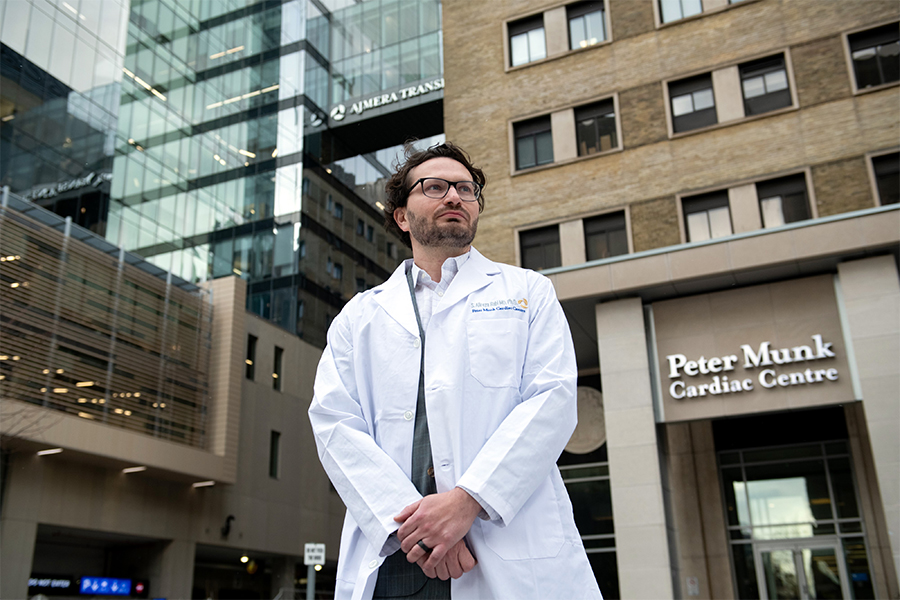“Our findings suggest that in the first month after a positive COVID-19 test, patient care should be tailored to better prevent cardiovascular events, particularly among younger men,” Dr. Jacob Udell of UHN’s Peter Munk Cardiac Centre, who is the principal investigator. (Photo: UHN)
While severe outcomes from COVID-19 have decreased with each new wave, a new study suggests the risk of cardiovascular (CV) hospitalization has persisted or increased – particularly for younger men, aged 18 to 45.
The study was conducted by the Peter Munk Cardiac Centre at UHN, ICES and Women’s College Hospital, and published last month in JACC: Advances, the Journal of the American College of Cardiology.
Studies around the world have pointed to male sex, old age, and pre-existing health conditions as independent risk factors for increased severity of COVID-19 infection, disease and death.
“Initially, interactions between sex and certain health conditions were found to have a greater impact on women, who were more likely to experience severe outcomes like intubation or death,” says Bahar Behrouzi, MD/PhD candidate at the University of Toronto (U of T), and study lead.
“But there was no analysis yet of possible sex differences by age for severe outcomes, particularly in North America, that honed in on cardiovascular hospitalization.”
The retrospective cohort study, “Sex-based differences in severe outcomes, including cardiovascular hospitalization, in adults with COVID-19 in Ontario, Canada,” included almost all patients in Ontario with laboratory-confirmed SARS-CoV-2 infection during the first three waves of the pandemic.

The study showed that across all waves and in all age groups, men experienced higher rates of a severe outcome – such as requiring hospitalization for a cardiovascular complication, intensive care, a breathing machine, or dying – compared with women, although the magnitude varied by age.
While the difference between men and women in the risk of all-cause death was highest during Wave One – with young men at four-fold higher risk – younger men and women were at similar risk by Wave Three, which could be due in part to vaccinations and non-pharmaceutical interventions.
However, for CV hospitalization, with each subsequent wave, there was little to no change in the increased risk borne by men versus women for all age groups. In general, across all waves, middle-aged men – ages 46 to 65 – were at two- to three-fold higher risk compared to women of the same age.
“We know that adopting an age- and sex-informed approach to patient care has improved outcomes,” says Dr. Jacob Udell, cardiologist and clinician-scientist at the Peter Munk Cardiac Centre and Women’s College Hospital, and adjunct scientist at ICES, who was principal investigator of the study.
“Accounting for this variation in risk is especially crucial in early decision-making for patient treatment,” adds Dr. Udell, who is also an associate professor in the Department of Medicine at the U of T. “Our findings suggest that in the first month after a positive COVID-19 test, patient care should be tailored to better prevent cardiovascular events, particularly among younger men.”
The findings highlight the need for further efforts to examine clinical, biological, psychosocial, and health system factors contributing to the growing disparity between the sexes in the risk of cardiovascular hospitalizations following COVID-19.


